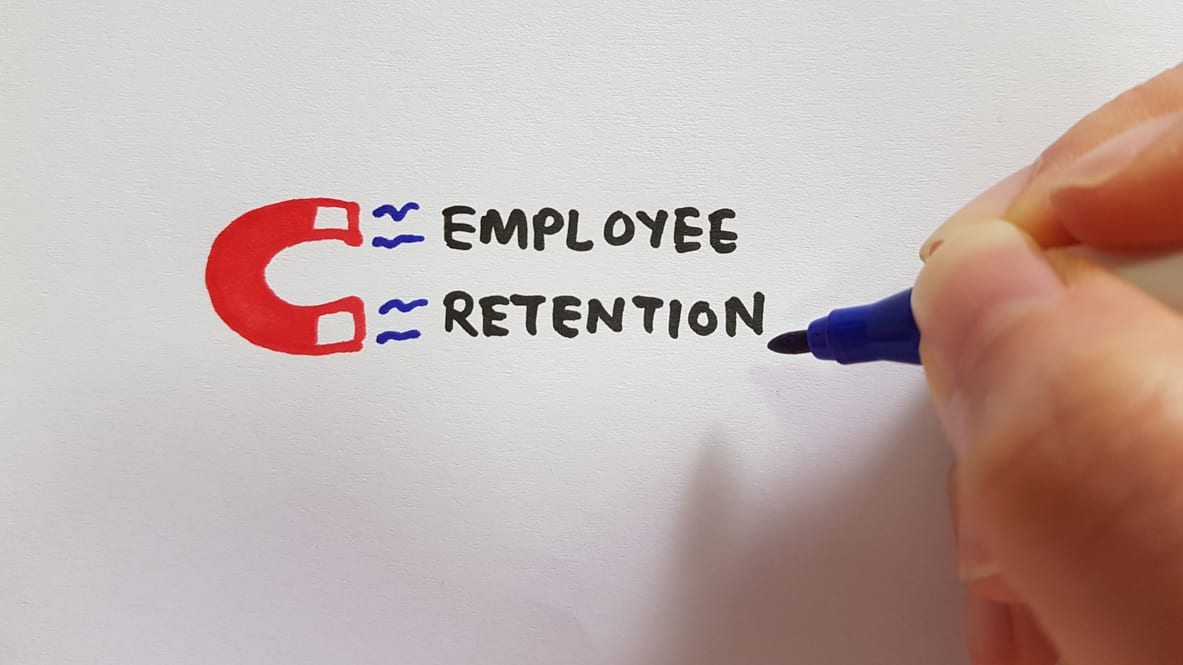Retention is an increasing concern for employers. As a result, stay interviews are becoming a popular tool for reducing turnover.
But do they work?
Unfortunately, companies don't always get stay interviews right. To use this retention tool, it's important to avoid some common mistakes.
Letting HR Handle the Interview
These one-on-one meetings give managers a chance to find out what employees like and don't like about their jobs. Uncovering potential reasons for quitting gives managers time to address concerns before an employee decides the grass is greener at another organization.
First, never delegate stay interviews to the human resource department. The meeting should be a personal conversation between an employee and his or her direct manager, said Kathleen Quinn Votaw, CEO of TalenTrust, a recruiting and human capital consulting firm based in Denver, and author of Dare to Care in the Workplace: A Guide to the New Way We Work (Advantage Media Group, 2021).
"Stay interviews promote a more intimate relationship between employers and employees," she said. "Whether you're the CEO, a VP, director or manager, you need to understand what the internal customer—the employee—wants and why they choose to continue to work for you."
Not Being Transparent
Be candid with employees about the reason for the interview.
"Being honest and upfront with employees is essential," said John Morgan, president of LHH, a talent acquisition and recruitment firm headquartered in Maitland, Fla. "If employees see organizations making the effort to gain honest feedback and are transparent in the challenges they are looking to address, employees will be a lot more forthcoming in sharing their feedback."
Lily Valentin, head of U.S. operations at Adzuna, a global jobs search engine based in Indianapolis, agreed: Before the interviews, "share some of the questions you are eager to cover so employees have time to reflect and come prepared," she said.
Making It About the Company
Managers shouldn't think of stay interviews as the solution to the Great Resignation. Their primary purpose is to foster trust and engagement, supporting employees in their roles and in their careers.
"If an employee feels like their stay interview is solely for the purpose of retaining talent [to] benefit the company, then the intent of the interview has been lost," said Amy Mosher, chief people officer at the human capital management platform isolved, based in Charlotte, N.C. "Lead with empathy, focusing on facilitating open, candid conversations about what motivates the employee to stay at that organization, what they want to do next, as well as potential threats that could make the employee consider leaving the company."
Mosher added that the name "stay interview" can sometimes imply an employer-focused conversation. "At isolved, we call them 'engagement check-ins' to emphasize the goal of building a high-trust relationship between managers and employees," she said.
Treating the Conversation Like an Interrogation
Another mistake is conducting the meeting like an interrogation, said Quinn Votaw.
"Managers might ask questions like, 'Why do you choose to work for me? Why would you leave? You would never leave, right?' " she said. "You don't want to interrogate the people who you work with every day. Make sure you're in a good place to receive [their] information empathetically."
Also, be careful that the conversation doesn't feel like an exit interview, in which questions typically skew toward the negative, covering the reasons a person might leave their role, Mosher said. The exchange should include positive topics such as career goals and development opportunities.
Valentin recommended avoiding the conference room for this meeting, which can feel formal or stiff. "With the objective of having an honest conversation, managers will get more candid feedback if the conversation takes place over a coffee or a walk," she said.
Waiting Too Late
It's tempting for managers to conduct stay interviews only after they sense that an employee is thinking of leaving or seems disengaged. By then, it could be too late, Morgan said.
"The whole point of a stay interview is to reach the employee before they have made the decision to leave," he said. "Don't wait to get input from employees. The earlier and more often you initiate the conversation, the better."
Avoiding the Interview
Having a stay interview can feel like opening a can of worms, sending managers down a rabbit hole of "what ifs" and worries and putting thoughts of leaving into employees' heads. Quinn Votaw said it's natural for managers to want to avoid stay interviews for those reasons.
"The manager might think, 'If I start asking an employee why they work for me, I'm going to know if they're happy, mad, sad or glad being here. I might have to do something, and if I can't, they're going to be more disgruntled, and because we're in the Great Resignation and there's 10.5 million job openings and only 7.5 million people, I'm going to have to do her work, so I'm just going to avoid this completely,' " she said.
But when you don't know what you don't know, the risk of an employee leaving only grows.
"Stay interviews are an iteration of fierce conversations," Quinn Votaw said. "You're going to learn things that you're going to have to react to, but that's the point. Ignoring potential problems won't make them go away."
Stephanie Vozza is a freelance writer based in Franklin, Tenn.
An organization run by AI is not a futuristic concept. Such technology is already a part of many workplaces and will continue to shape the labor market and HR. Here's how employers and employees can successfully manage generative AI and other AI-powered systems.




